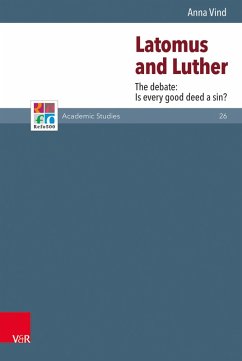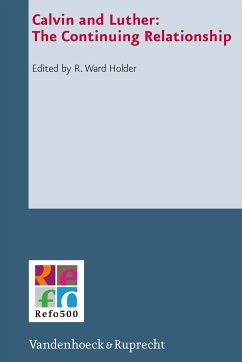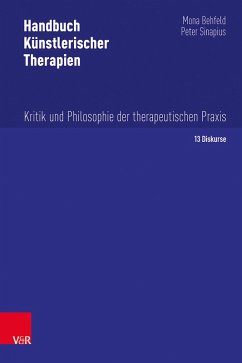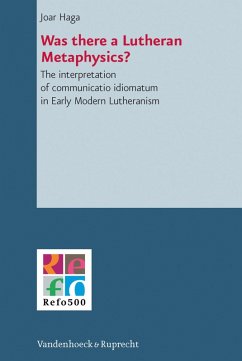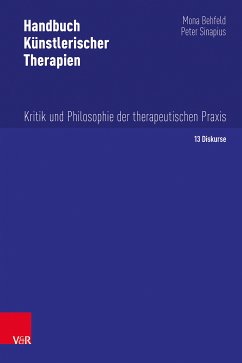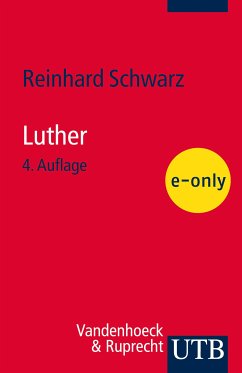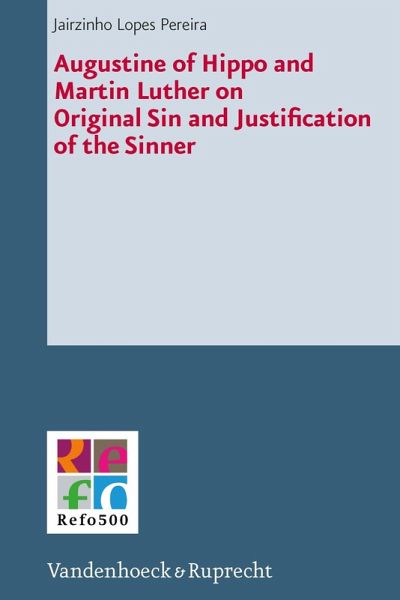
Augustine of Hippo and Martin Luther on Original Sin and Justification of the Sinner (eBook, PDF)
Versandkostenfrei!
Sofort per Download lieferbar
Statt: 100,00 €**
95,00 €
inkl. MwSt. und vom Verlag festgesetzt.
**Preis der gedruckten Ausgabe (Gebundenes Buch)
Alle Infos zum eBook verschenkenWeitere Ausgaben:

PAYBACK Punkte
0 °P sammeln!
The book is divided into two parts. The first part deals with the development of Augustine'stheology of Original Sin and Justification. Here the emphasis is placed on the defining moments ofthis development process. These moments are the second half of 390s (period during which theChurch Father wrote two of his key-works: De diversis quaestionibus ad Simplicianum (396/397)and Confessiones (397-400)) and the last twelve years of his literary career, with emphasis on theworks he produced in the heat of the long and bitter confrontation with Julian of Aeclanum.In the second part Pereira deals wit...
The book is divided into two parts. The first part deals with the development of Augustine'stheology of Original Sin and Justification. Here the emphasis is placed on the defining moments ofthis development process. These moments are the second half of 390s (period during which theChurch Father wrote two of his key-works: De diversis quaestionibus ad Simplicianum (396/397)and Confessiones (397-400)) and the last twelve years of his literary career, with emphasis on theworks he produced in the heat of the long and bitter confrontation with Julian of Aeclanum.In the second part Pereira deals with Luther's doctrines of Original Sin and Justification of the sinner.The main source of analysis is Luther's Lectures on Romans (1515/1516). There is an intrinsicrelation between the two parts of the work. The author demonstrates how Augustine came tobreak with the patristic soteriology and anthropological theology and adopted the radicalism ofgrace with which he faced the theologians associated with the fifth-century Pelagianism, especiallyJulian of Aeclanum. In the second part, Pereira argues that it was precisely that radicalism of grace thatmade of Augustine Luther's favourite theologian. The same radicalism of grace was adopted byLuther in his opposition to the recentiores doctores, the Nominalist theologians, especially GabrielBiel. Without overlooking the crucial role played by the Pauline corpus, one can accurately say thatAugustine's anti-Pelagian thesis were at the core of the young Luther's soteriological andanthropological claims (essential to understand what the Lutheran "insurgency" was all about) andwere the driving force behind Luther's cry for reformation, at least as far as the doctrine of salvationwas concerned.When it comes to the doctrine of salvation, Augustine found in Luther a prominent reader and a faithful follower. To understand this fact, it would suffice a careful analysis of Luther's doctrine of justification by faith alone since it contains a strong and genuine Augustinian tonality.
Dieser Download kann aus rechtlichen Gründen nur mit Rechnungsadresse in A, B, BG, CY, CZ, D, DK, EW, E, FIN, F, GR, H, IRL, I, LT, L, LR, M, NL, PL, P, R, S, SLO, SK ausgeliefert werden.




